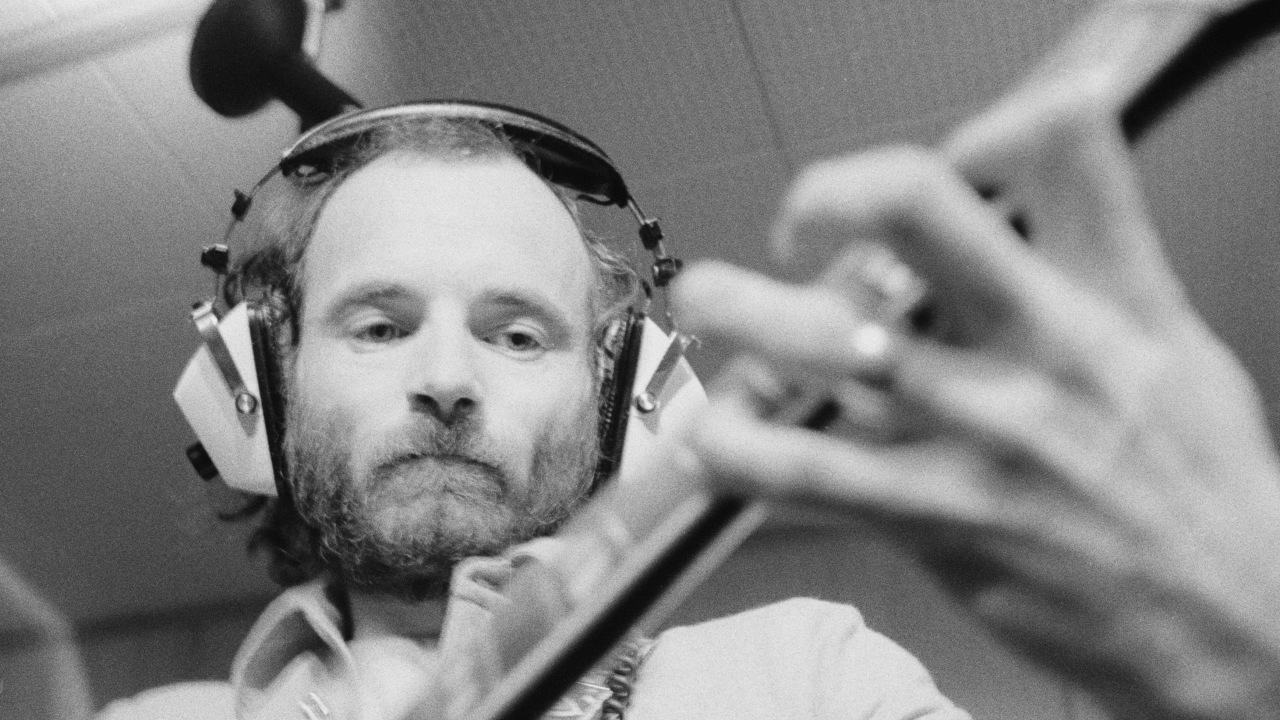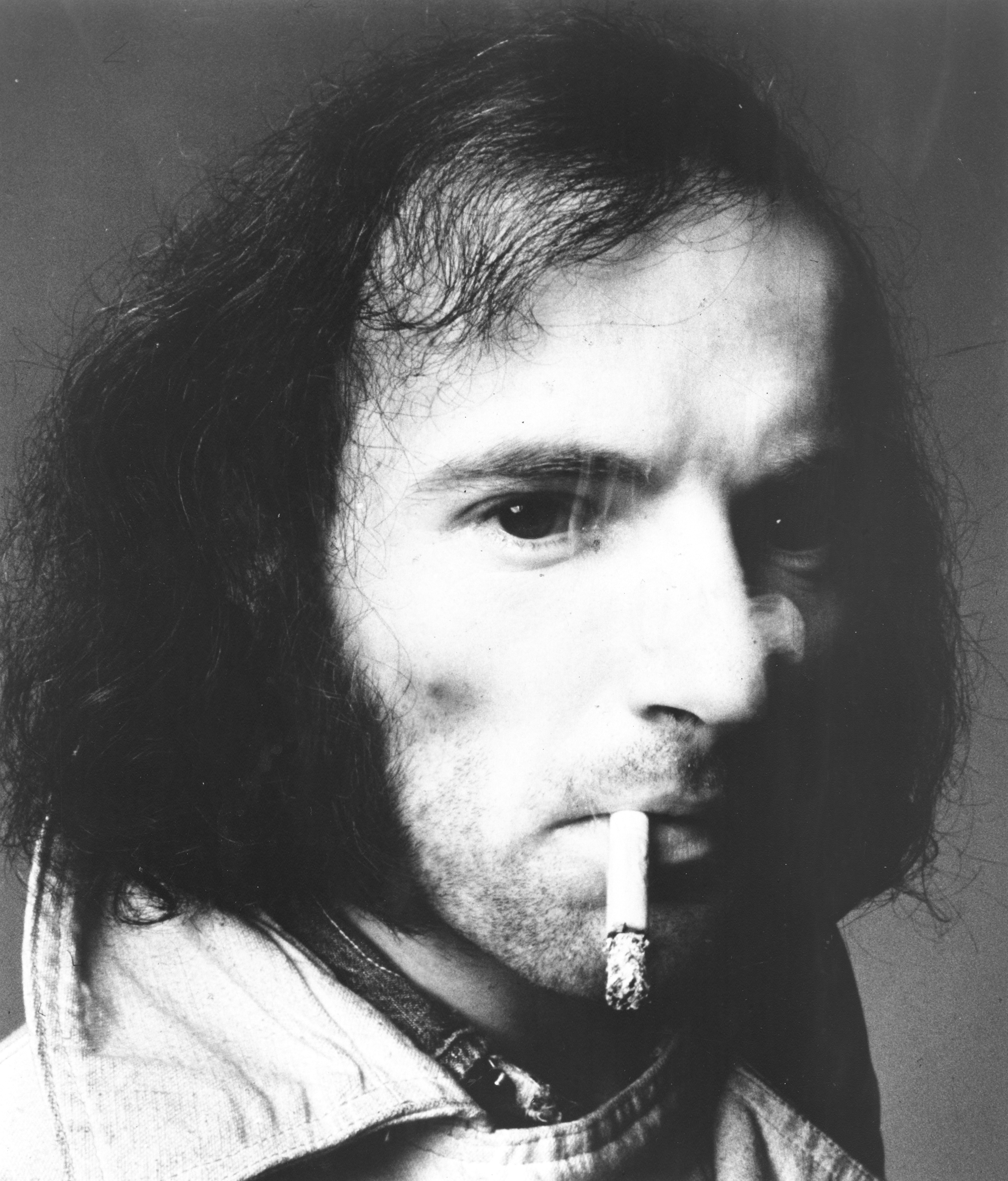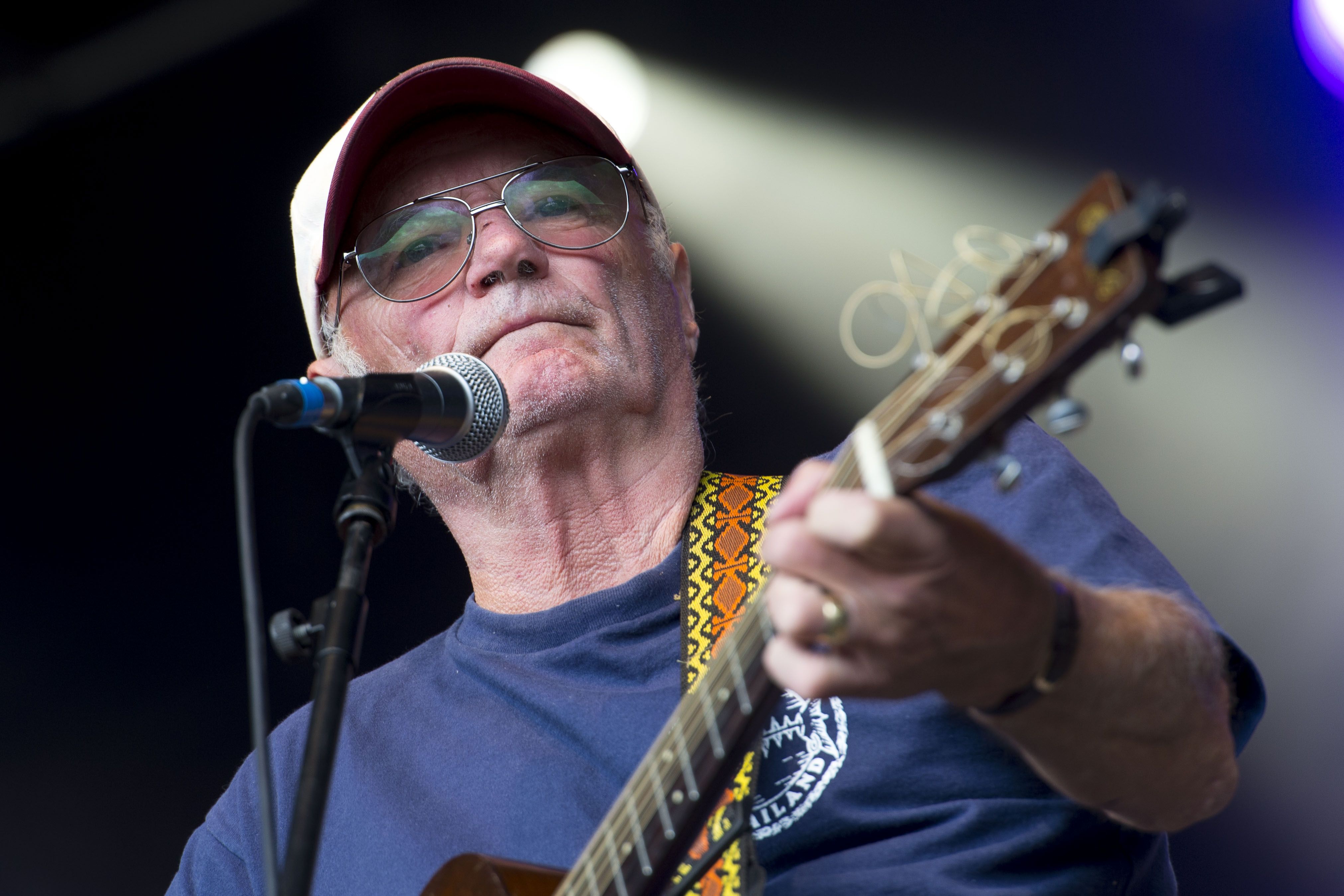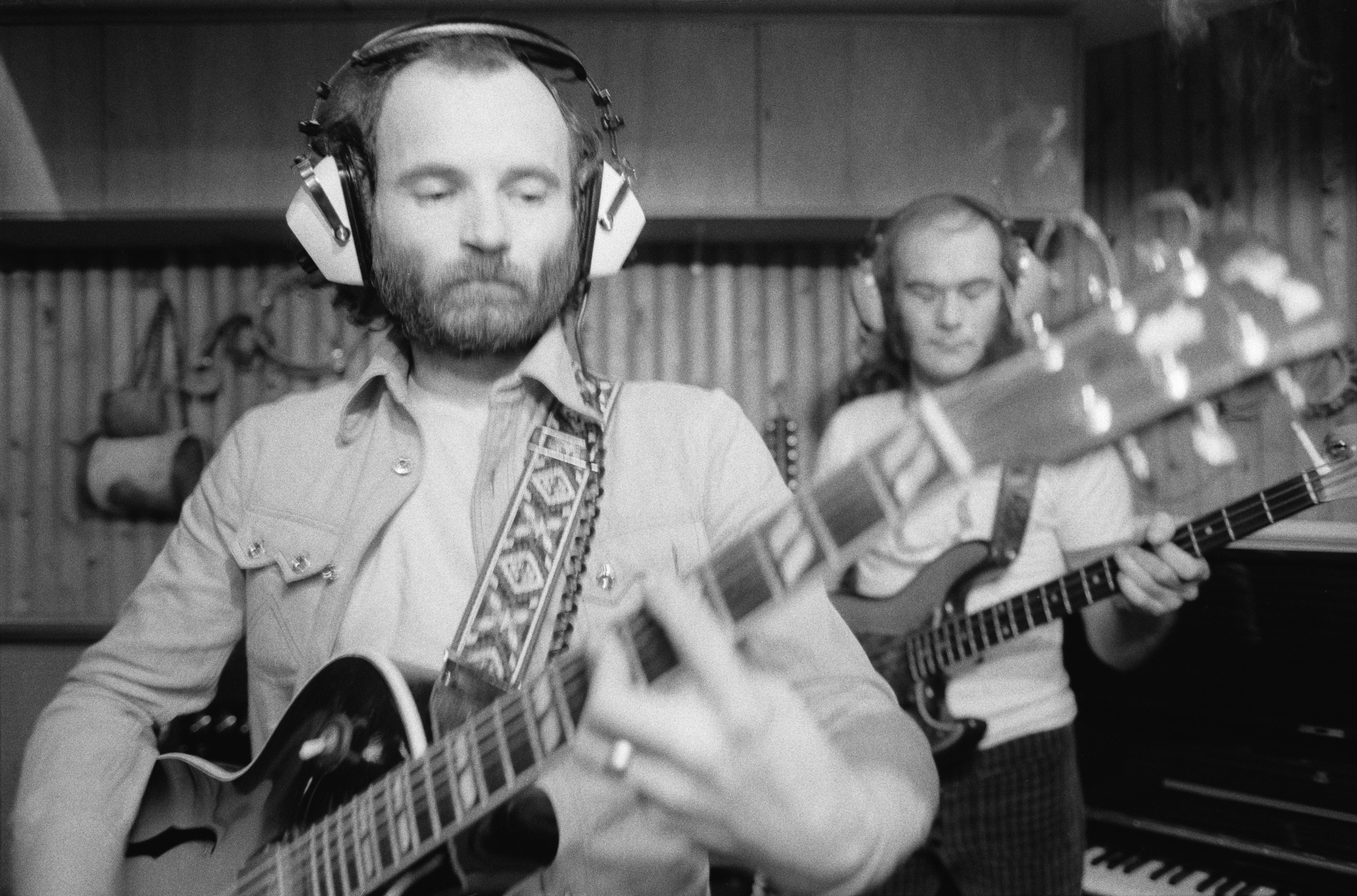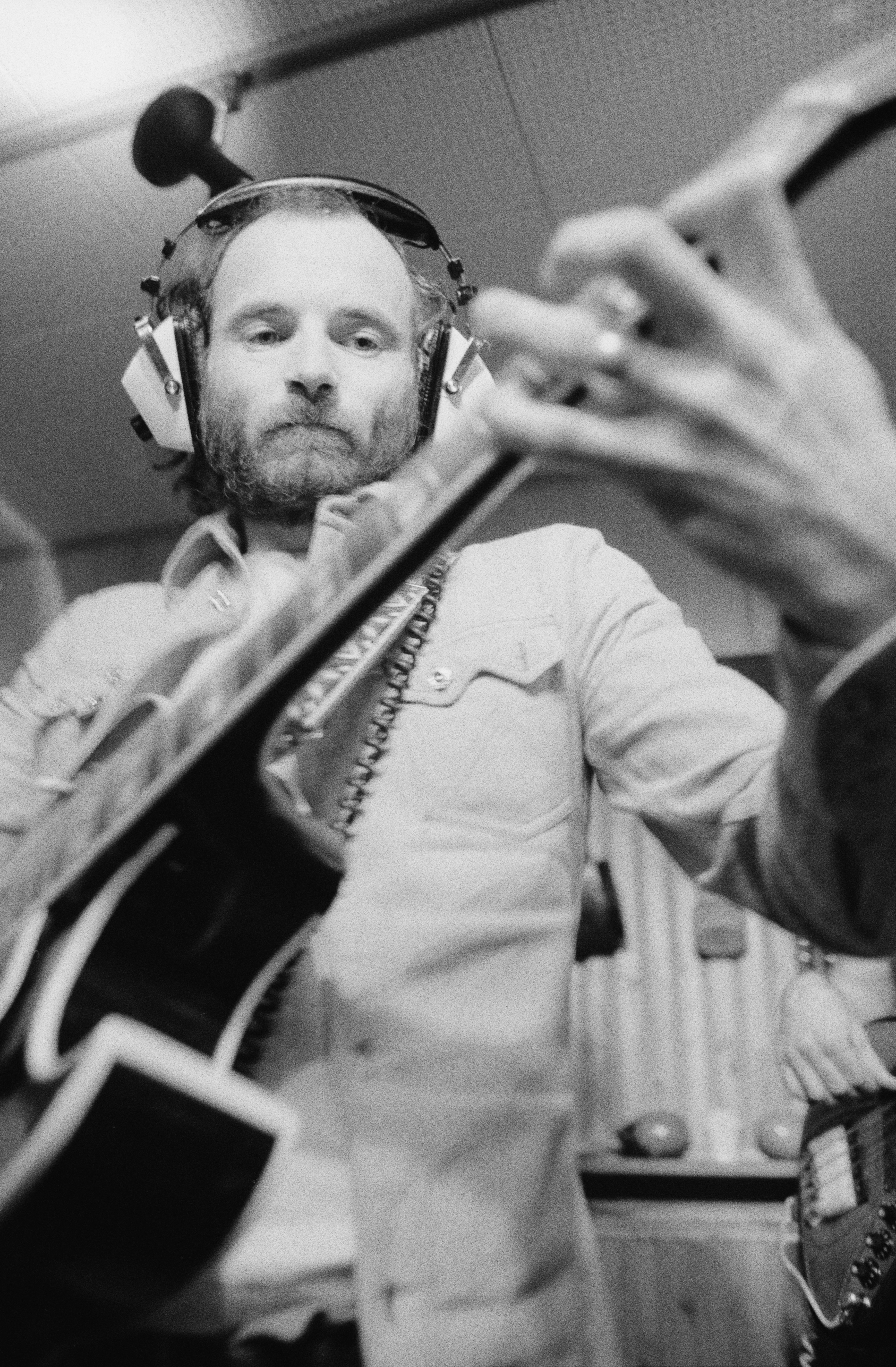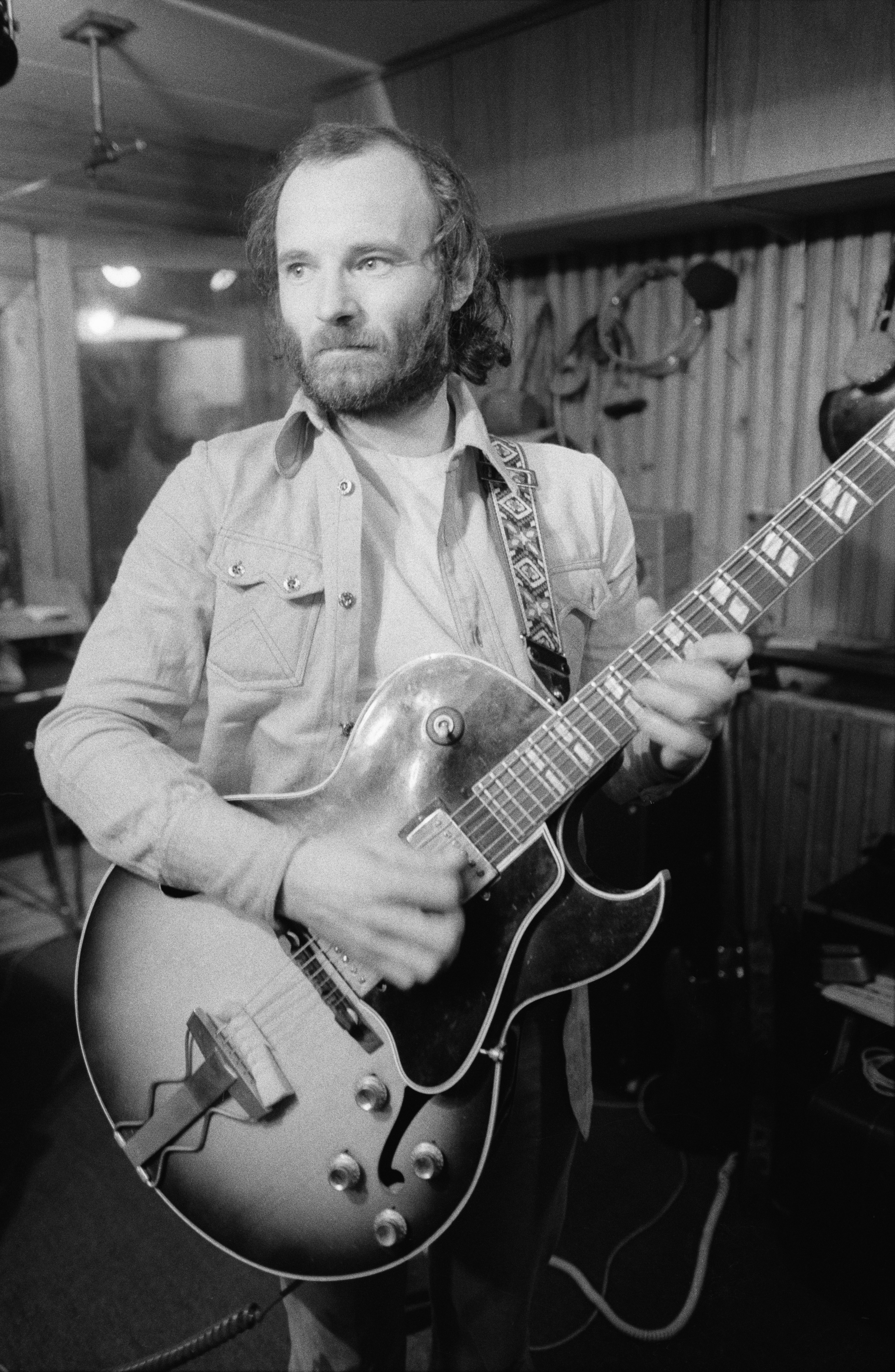The man who hated mornings is alert and cheerful when he answers the phone, but then it is, after all, well past 2pm.
Cheerful, that is, so long as no one calls him a ‘folk singer’, just because his weapon of choice is an acoustic guitar. Michael Chapman is a veteran singer-songwriter raised on jazz, steeped to the back teeth in blues and probably best known to rock fans for launching the career of a young fellow stalwart of Hull’s late-60s music scene, one Mick Ronson.
What’s on his mind right now is the imminent release of an album unique even in a recording career stretching back around four and a half decades, and boasting more than a few musical landmarks. Less than a year into the former art teacher’s professional musical career, before he started writing his own songs and when he was still billed an an ‘exciting new blues artist’, he played a solo gig at a club called The Folk Cottage near Newquay in Cornwall. Unbeknown to Chapman, the show was recorded on pro-quality equipment, and what went down on Good Friday, March 24,1967, was preserved for posterity.
Entitled Live At Folk Cottage, it’s now been cleaned up, edited and prepared for release. Even though the repertoire includes a clutch of untitled instrumentals, a canter through Buddy Holly’s That’ll Be The Day and ballady versions of I Thought About You and When Did You Leave Heaven?, it’s still a full-on blues set. The likes of Baby Please Don’t Go, Parchman Farm, All Night Worker and Kansas City are delivered loud and proud, with the distinctive Chapman guitar and vocal style – to be unleashed on a waiting world a year or so later on his stunning Harvest debut album Rainmaker – already almost fully developed. In fact, it was at Folk Cottage that Chappo made the contacts that led first to a publishing deal and then a recording contract, which took him into the studio with Gus Dudgeon at the controls.
For those who discovered him with Rainmaker, like early booster John Peel, this album serves as a kind of ‘Previously… on Michael Chapman’. The first Chappo himself knew about it was when “someone sent it to the guy who looks after my website. I’ve been playing down in Cornwall since 1966 and I was amazed at how good it was. As far as I remember, there was no electricity in the place at all.
“I might’ve noticed somebody recording if they’d been sitting in the front row, but then I’ve never been good at playin’ with me eyes open, so what the hell do I know? I was gobsmacked, because I never thought there was anything recorded of me that was anywhere near worthwhile before I started writing, because I thought that was the interesting bit. That tape is just me playing anything that came into me head, basically in sheer desperation!
“I was just dredging up anything I could think of. I hadn’t a clue how to do it. It was only the summer before that I’d walked into a folk club down in Cornwall and got offered a job. All of a sudden I was a professional musician, so I would just walk on stage and play anything I could think of. I can’t even remember where I learnt half of those songs. When Did You Leave Heaven? – that might have been Jack Teagarden or someone like that.”
Like many young Brit musicians of that era, was playing the blues essential to the unlocking of your own creativity?
Exactly! And that’s a process I’m still involved with. I’d like to think that because of the sheer simplicity of the blues, there’s a trace of that music in everything I play, because I don’t like to overcomplicate things.
Some people who’ve tried to learn some of your guitar parts might disagree…
Well, we do disagree about that, because I couldn’t be bothered trying to make my life difficult. I think it’s easy, because otherwise I can’t be bothered. I’ve never wanted a difficult life. I would love to have been Kenny Burrell or Grant Green or Wes Montgomery, but I was never ever gonna get that good. So once I started playing like me, I realised that it doesn’t have to be complicated.
I had the famous Davy Graham/Alexis Korner 3⁄4 AD EP: anybody who possessed an acoustic guitar had that. During the last year I was teaching, there was an English blues boom, and some of my students didn’t go for the electric side – though they liked that – but preferred the acoustic side. They’d bring records into college – we had a gramophone in my department – and play me Lightnin’ Hopkins. Lightnin’ can’t sing, and neither can I! I also thought that maybe I should be like Mose Allison, with a guitar rather than a piano – there are three of his songs on that tape! I’d heard people like Mance Lipscomb and especially Snooks Eaglin. That EP where Snooks plays all acoustic on the street – I thought he was great! An 18-year-old who sounded like a 60-year-old. I thought, ‘That’s the way to go!’
Was listening to it now like looking at your baby pictures?
Baby pictures? Yeah, sure! I was straight out of the box, y’know. I was thrown in at the deep end. That first summer I only had to play half an hour a night, but every night I was trying to dredge up something else to play so I wasn’t just playing the same four songs all the time, even though I made them longer some days! I would play Jimmy Giuffre’s The Train And The River, or Thelonious Monk’s ’Round Midnight, but by the time that tape was made, I’d definitely shifted gear away from jazz because playing acoustic guitar on your own with no microphones, it just wasn’t reaching the back row. I had to project, which has never been my strong point.
What may sound like a 12-string guitar in the first few songs and a resonator in the later ones are, in fact, nothing of the sort.
The first tracks are recorded on a nine-string. I’d seen Big Joe Williams with one, and I’ve always wanted to play 12-string but never been able to. I had a Harmony Sovereign knockin’ about – it was the cheapest American-made guitar you could get then in this country. Everybody had one: I had one, Ralph McTell had one, Wizz Jones had one. They had that big bass end: perfect for playing blues. It had a huge headstock, so I nailed another three machine heads across the top so I could put nine strings on it. ‘Shit! That works!’ So it sounds like a 12-string, but there’s no doubling-up on the bottom three strings.
The tape starts with that and then goes to a 1932 Clifford Essex Paragon, and there were only a dozen ever made, but unfortunately I drank it during what my wife Andru calls Michael Chapman: The Missing Years. I’d love to have it back, but I don’t know where it went. But if I’d kept every guitar I ever had, I wouldn’t be able to move in this house.
I was being an arsehole – chucking up on gigs, kept selling guitars in order to eat… and drink. Some of them were really special, and that was one of ’em. It sounded weird, really metallic. It was invented by some German guy they brought over to London in 1931 or ’32. Clifford Essex were a banjo company, and he’d told them that he could build an acoustic guitar that would be so loud it wouldn’t need an amplifier. It had two bodies: one inside the other, with holes in so you’d get reverb – allegedly. I must admit: it was loud.
In the instrumentals, and during the solos, you’re making extensive use of non-Western scales. Where was that coming from?
Listening to people like Coltrane and Yusef Lateef, jazz players who’d listened to Indian music and mixed it in with that they were doing. I was getting it third-hand: from Indian musicians to tenor sax players to me. I was mainly interpreting other things, because I’ve never been good at copying anything. The instrumentals were just me playing because I couldn’t think of anything else to sing. At that time, Ralph McTell hadn’t yet taught me to do the alternate bass-string thing for clawhammer picking, so it’s just that Big Bill Broonzy thump at the bottom, which anchors it straight to 4⁄4. I’d heard Broonzy when I was at college and I thought that was pretty neat. I’d always had an acoustic guitar. I don’t know why, because in those days I’d mostly been playing electric.
So how did a hardcore blues and jazz player end up in folk clubs?
You know my aversion to folk music! Folk music had just hit: Joan Baez and Bob Dylan, folk clubs everywhere, and more and more every month. Cornwall had two of the famous ones that weren’t in London, Manchester or Birmingham. The Folk Cottage was just outside Newquay, and that was very South London-based. The whole of Croydon used to turn up there, Ralph McTell with his jug band and so on. And the one down at Land’s End, the Tallach, there were people from everywhere, and they were open six nights a week, and one night a week they’d have an all-nighter. They were full nearly every night: it was unbelievable.
And it was such a broad church of music – it didn’t matter what you played as long as you were good enough at it. Noel Murphy hadn’t turned up yet, but Donovan had been down there before he hit the big time. Murphy had been roadying for him: looking after Donovan was how he got onto the folk scene. People came from all over the world. People from Europe and America in this little place at Land’s End that held 60 people.
The other thing was, if you played in a jazz band or a rock‘n’roll band, at the end of the night you get the money if you’re lucky – and then you’re on the street. But there, people were very sociable. ‘Come back to our house! Have a beer! Have a coffee! Do you want a bed? If you need to crash, we’ve got a sofa…’ I’d never met that kind of friendliness before as a musician, which kind of endeared me to it. I’ve never been a great lover of folk music, but it was the people who were so friendly – they thought musicians weren’t scum!
How did you process the blues you’d been playing into the songwriting style you developed so strongly over the next few months?
I’ve never thought about that. It must’ve been maybe a year after that, I was driving back to Hull from a gig in Norwich and I was tired, so I pulled up outside a truck stop and these lines came into my head: ‘My life goes by so easy, my days they pass so well.’ So I wrote these lyrics down, got the guitar out of the back of the car, found a couple of chords and thought, ‘Shit! I’m writing a song!’ I’d never known that people like me could write songs or make records. I’d met some people who’d made records and they seemed like… not quite from another planet, but just so far in front of what I was thinking about. So then I just started writing. All I’ve ever done is try to write a cross between a diary and a justification of my life!
Songs about drink, women and dogs…
Yep, that’s it. That’s me. I haven’t got a dog at the moment, but I’ve got a very strange cat.
After almost half a century, what would Michael Chapman want people to take away from hearing his so-much-younger self playing blues live at Folk Cottage?
Here’s the pre-history, if you’re interested. It’s a piece of history. I was gobsmacked by how good it is. I never knew that I’d got it down like that. In those days, you never got to hear yourself. It wasn’t like these days when everyone can record a gig on their phones. I’ve got a gig next week where I’m going to try to play some of it. I’ll have to do some work on the lyrics, though. These days I can hardly remember me own songs, let alone anybody else’s!
It’ll be interesting to see what I end up doing with it, because I’ve never been any good at playing the same thing twice. I’m not a human jukebox – I won’t just turn it out like I used to. I’m looking forward to it because, as I said, everything I do is based in blues. When I write, I put big ideas into small words… which is what the blues does.
DISCOVERING MICK RONSON
How David Bowie’s future right-hand glam man went from gardener to guitar hero.
Yorkshire to the bone: born in Leeds, Michael Chapman relocated to Hull to teach art and photography and became a linchpin of the local music scene, hanging out and playing with the likes of bassist Rick Kemp and a young guitarist named Mick Ronson. When it came time to record Fully Qualified Survivor, his second album for Harvest, he butted heads with producer Gus Dudgeon over his insistence on bringing in Ronson – then working as a gardener for the council – rather than using one of Dudgeon’s preferred session players. Kemp (who later joined Steeleye Span) was dispatched to locate Ronno, and found him mowing a lawn. Kemp asked if he wanted to come to London and play the session; Ronson left the lawnmower where it was and nipped home to pick up his Les Paul. On the Survivor sessions, he sufficiently impressed Dudgeon for the producer to recommend the young guitarist to one of his other clients – one David Bowie. The rest, as they say, is history.
Twenty years after his death, Ronson remains one of Hull’s favourite sons: to the point where, with Hull gearing up to assume the mantle of European City Of Culture, Chapman has been asked to reassemble the survivors of Survivor for a gala memorial concert. “What would be the point, though?’ he asks. “There’s only me and Rick left. And who could replace Mick Ronson?”
Live At Folk Cottage is available now. See www.michaelchapman.co.uk for details.
